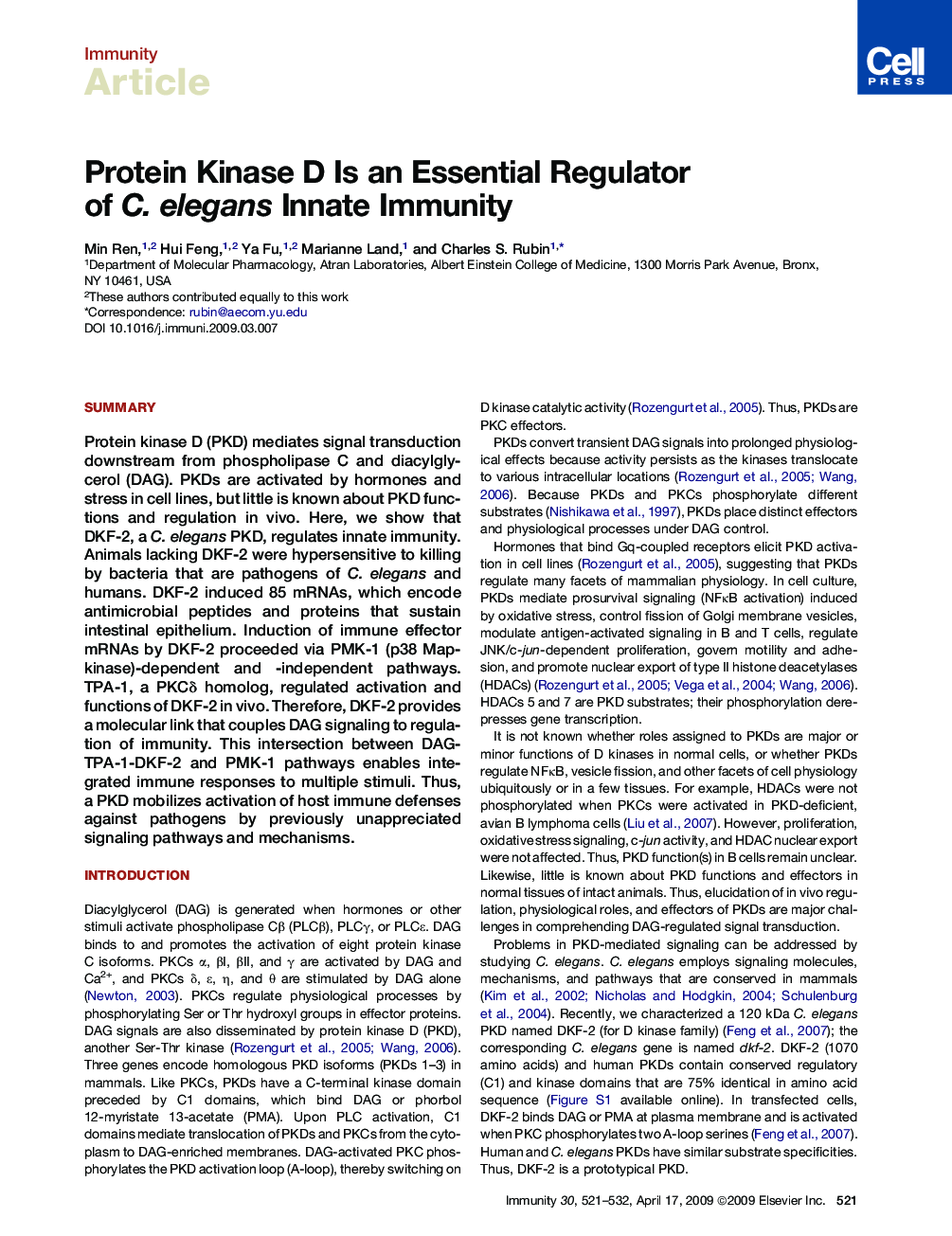| کد مقاله | کد نشریه | سال انتشار | مقاله انگلیسی | نسخه تمام متن |
|---|---|---|---|---|
| 3353698 | 1216884 | 2009 | 12 صفحه PDF | دانلود رایگان |

SummaryProtein kinase D (PKD) mediates signal transduction downstream from phospholipase C and diacylglycerol (DAG). PKDs are activated by hormones and stress in cell lines, but little is known about PKD functions and regulation in vivo. Here, we show that DKF-2, a C. elegans PKD, regulates innate immunity. Animals lacking DKF-2 were hypersensitive to killing by bacteria that are pathogens of C. elegans and humans. DKF-2 induced 85 mRNAs, which encode antimicrobial peptides and proteins that sustain intestinal epithelium. Induction of immune effector mRNAs by DKF-2 proceeded via PMK-1 (p38 Map-kinase)-dependent and -independent pathways. TPA-1, a PKCδ homolog, regulated activation and functions of DKF-2 in vivo. Therefore, DKF-2 provides a molecular link that couples DAG signaling to regulation of immunity. This intersection between DAG-TPA-1-DKF-2 and PMK-1 pathways enables integrated immune responses to multiple stimuli. Thus, a PKD mobilizes activation of host immune defenses against pathogens by previously unappreciated signaling pathways and mechanisms.
Journal: - Volume 30, Issue 4, 17 April 2009, Pages 521–532